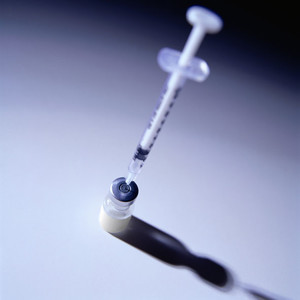According to the 2011 report by Rovira et al., biosimilars commercialised in Italy show a low penetration both in the total market (0.01%) and in the biological market (0.3%). However, in order to try and promote the uptake of biosimilars, a specific initiative is now being used during the negotiation procedure of biosimilars giving progressive price reductions [1].
Substitution and interchangeability
The substitutability and interchangeability of generic medicines are authorised by the Italian Medicines Agency (AIFA), following an evaluation of bioequivalence results. Interchangeable products are then listed in the Transparency List, which indicates medicines reimbursed by the National Health Service (NHS) on the basis of the reference price (RP) system, with details of their RPs.
The substitutability and interchangeability of biosimilars and biological reference products at the pharmacy level are not allowed in the Italian pharmaceutical system due to the diversity of biosimilars and biological pharmaceuticals. The official position of AIFA, according to the EMA opinion, is that biological medicines and biosimilars cannot be considered in the same way as other generic medicines, excluding the therapeutic substitutability. Consequently, in Italy the following issues are applied:
- Biosimilars available in Italy are not listed in the Transparencies List
- The choice to treat a patient with a biological medicine or a biosimilar is a clinical decision to be made by physicians
Pricing and reimbursement
In Italy, AIFA is responsible for all matters regarding the chain of pharmaceuticals for human use, including market authorisation, pharmacovigilance, and the pricing and reimbursement of all pharmaceuticals.
Legislative Decree No. 219/2006 introduced a definition for ‘biosimilar or bioequivalent’ and indicated the documentation necessary to obtain approval for a biosimiliar. The applicant will need to submit to AIFA a complete and exhaustive dossier containing pre-clinical tests and clinical trial results in order to obtain the marketing authorisation of a biosimilar product.
In Italy, prices of pharmaceuticals reimbursed by the NHS are regulated at the central level and remain the same across the whole country. The pricing and reimbursement procedure is regulated by the Italian CIPE Deliberation, 1 February 2001.
Pricing and reimbursement procedures for biosimilars are the same as for other medicines. The price-setting system is based on a negotiation procedure applicable to all reimbursable pharmaceuticals. The negotiation procedure with manufacturers is managed by AIFA, assisted by the Committee for Pricing and Reimbursement (Comitato Prezzi e Rimborso [CPR]). Pricing and reimbursement decisions are strictly interlinked because they are the responsibility of the same body and also because both decisions are made within the same procedure. AIFA Technical Scientific Committee (Commissione Tecnico-Scientifica, CTS) expresses an opinion on reimbursement classification and the process of negotiation takes place only after this reimbursement evaluation.
The negotiation procedure is conducted following criteria based on product therapeutic value; pharmacovigilance data; price in other EU Member States; price of similar products within the same pharmacotherapeutic group; internal market forecasts number of potential patients; and therapeutic innovation. The prices are negotiated at ex-factory level and also define the pharmacy retail prices. Prices negotiated represent, in the case of hospitals, the maximum sale price for the NHS, but pharmaceutical companies must grant a rebate/discount to hospitals.
For generic and biosimilar medicines, the pricing negotiation procedure should guarantee at least a 20% price reduction with respect to the price of the originator reference medicine. Nevertheless, in order to stimulate the uptake of biosimilars through physicians, a progressive price reduction is applied, starting from an initial price reduction ranging from 22% to 15%, a further price reduction is set once a predefined volume threshold is achieved.
Related articles
Biosimilar substitution in the EU
Italian austerity measures include generic price cuts
Reference
1. Rovira J, et al. The impact of biosimilars’ entry in the EU market. January 2011.








 0
0











Post your comment